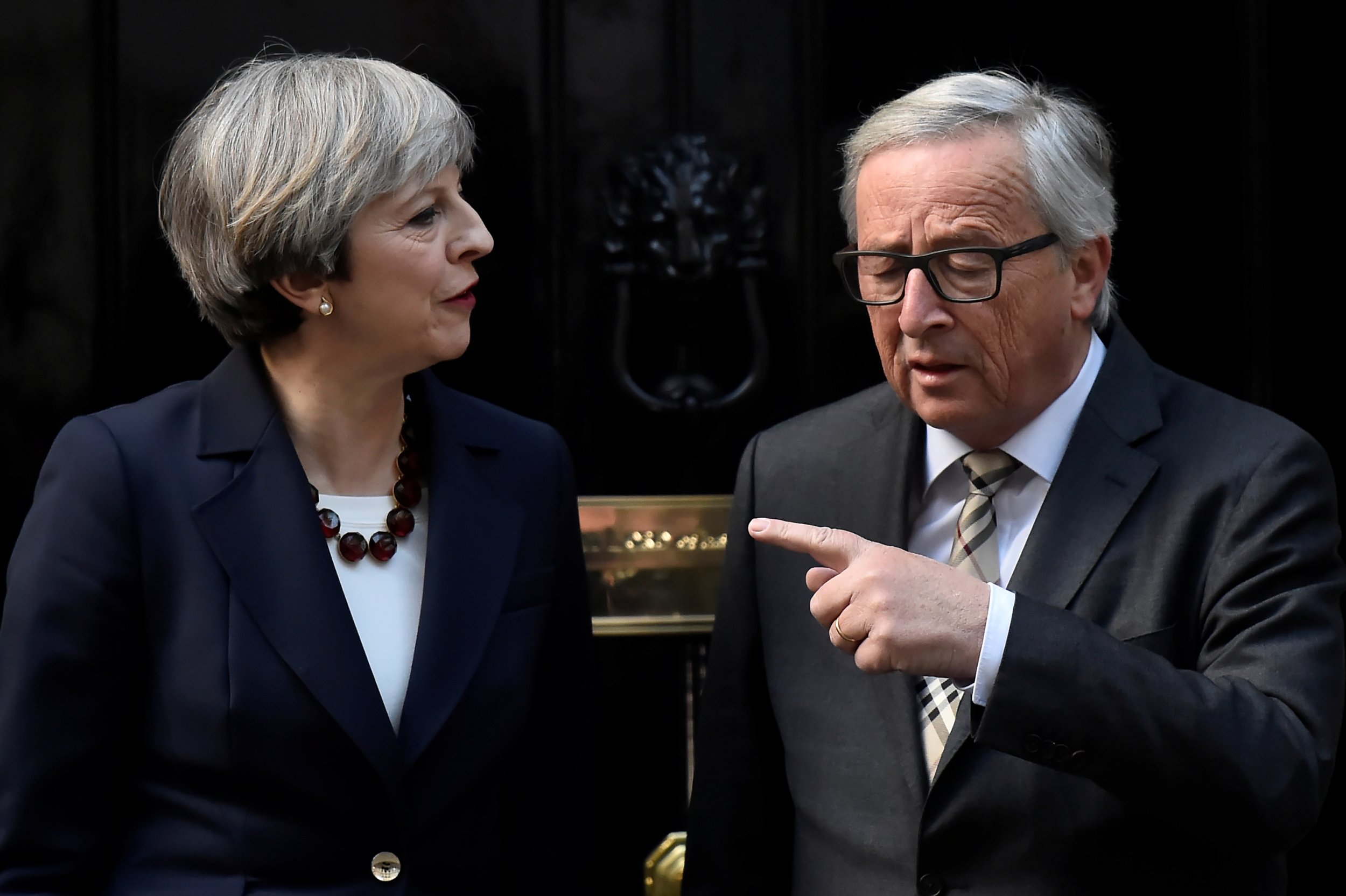
This article first appeared on the Council on Foreign Relations site.
The weekend's European Union (EU) Summit provided little love for UK prime minister Theresa May.
Leaders approved a tough opening position in the upcoming Brexit negotiations, and warned against "completely unreal" expectations of a swift and favorable deal.
EU negotiators will seek early agreement on the terms of exit (including citizen's rights and the financial exit payments) before moving forward on a long-term trade agreement, while the British government seeks agreement on all three tracks together—"divorce," transitional terms and the long-term deal—by March 2019.
Related: Will Brexit Drive Scotland out of the United Kingdom?
Hard talk at the start of the negotiation should not be a surprise, but in some respects this past week does reflect a turning point. In my May monthly review of global economics I review the state of the negotiations and argue that the hard part of Brexit begins now.
In particular:
- While the UK economy has held up impressively well to date, the longer-term economic costs of Brexit are becoming more apparent.
The primary cost of Brexit was never to be measured by short-term dislocation, but rather through the long-term reduction in investment and reduced efficiency that comes from lost access to Europe's common market and a less prosperous economic future.
Economists estimate that the loss in UK gross domestic product from Brexit ranges from 1.5 percent to 9.5 percent, attributable to increased barriers to trade and migration and to the financial services sector shrinking as a result of limits to cross-border activity.
Related: Dinner Party Gossip Reveals Brexiteers' Deep Delusions
- The new relationship between the United Kingdom and the European Union, as well as the rest of the world, will take years to work out. An extended transition to an uncertain future will further stress UK and EU economies.
- The election cycle—most important, the ongoing French elections and German elections in the fall—makes it impossible for leaders to make tough decisions on the future of Europe.
After those elections, and allowing some time for preparation, negotiators will have roughly nine months beginning early in 2018 to make the critical decisions on the path forward, in order for the exit agreement to be confirmed and implemented by the March 2019 deadline imposed by the Lisbon Treaty.
- The disconnect between political and economic timelines remains a significant, and underappreciated, cost of Brexit.
Long-term investment decisions take time, as does the relocation of jobs and production to the continent, and the regulatory approval process adds to the challenge.
Related: Richard Epstein: The Europeans Should Make Brexit Easier
All this suggests that, although investors have been patient and there has not been substantial movement of jobs to the continent so far, the pressure to make long-term decisions will intensify in the coming years, leading to investment and job shifts that could, in turn, affect the politics of Brexit.
The challenge of launching a fundamental renegotiation of Britain's economic and political relationship with Europe—a process that could take a decade—is straining political consensus in the United Kingdom and on the continent.
Brexit will produce a Britain that is poorer and less of an economic and financial power than if it had remained in the European Union. At the same time, the Brexit vote adds to the populist and inward-looking centrifugal forces pulling at Europe.
A chaotic Brexit remains a serious risk.
Robert Kahn is the Steven A. Tananbaum Senior Fellow for International Economics at the Council on Foreign Relations.
Uncommon Knowledge
Newsweek is committed to challenging conventional wisdom and finding connections in the search for common ground.
Newsweek is committed to challenging conventional wisdom and finding connections in the search for common ground.





